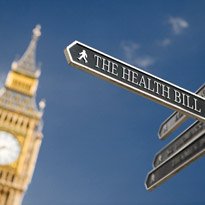Health Bill faces storm in Lords
- 8 February 2012

The Health and Social Care Bill returns to the Lords today, amid increasingly strident opposition to key elements of the government’s plans to reform the NHS.
More than 300 amendments have been put forward to the Bill, which underwent extensive revision last summer after the ‘listening exercise’ conducted by Professor Steve Field.
But the British Medical Association and Unison have used the start of debate in the Lords to renew their calls for the Bill to be withdrawn.
Christina McAnea, Unison head of health, said urged the government to drop what the union is now calling the ‘Frankenstein Bill’, saying: “It is a waste of money, a dangerous experiment, and the many amendments to it don’t change that.”
Over the past few weeks, the major royal medical colleges have come out in opposition to the Bill.
They argue that it fails to leave enough responsibility with the health secretary to secure a ‘comprehensive’ service, free at the point of use, and that it leaves too much room for the introduction of competition.
Unison also called yesterday for the government to publish the risk register for the reforms, which it has so far refused to do, despite a ruling from the Information Commissioner.
Newspaper reports have suggested that risks identified in the register include spiralling costs – which might arise from the greater involvement of the private sector, trusts seeking to maximise income in a less co-operative system, and weak clinical commissioning.
They are also said to include reluctance among GPs to take up the commissioning role; even though the commissioning side of the government’s reforms are already in train.
The NHS Commissioning Board has started work in Leeds, strategic health authorities and primary care trusts formed into clusters ready to become outposts of the NHS CB, and around 280 clinical commissioning groups have been identified.
Despite this, academic Kieran Walshe has argued that £1 billion could be saved by stopping the Bill now, while the RCGP has argued that the interim structures could be retained and GPs given a prominent role on cluster PCT boards.
The political heat on the government also increased yesterday when the Daily Mirror claimed that a government advisor had admitted Field’s listening exercise had been a sham, since the fundamentals of the Bill remained unchanged.
The claim drew a furious response from Field. But Lansley himself told the NHS Confederation’s annual conference last year that the "principles" of his vision remained unchanged.
Meanwhile, political columnist Rachel Sylvester reported that a “Number 10 source” had said Lansley should be “taken out and shot” because of his mishandling of the reforms.
This generated speculation that Lansley could be reshuffled. However, the health secretary survived the last round of criticism of the Bill, when Prime Minister David Cameron stepped in to set up the listening exercise and then claim to have acted on its findings.




